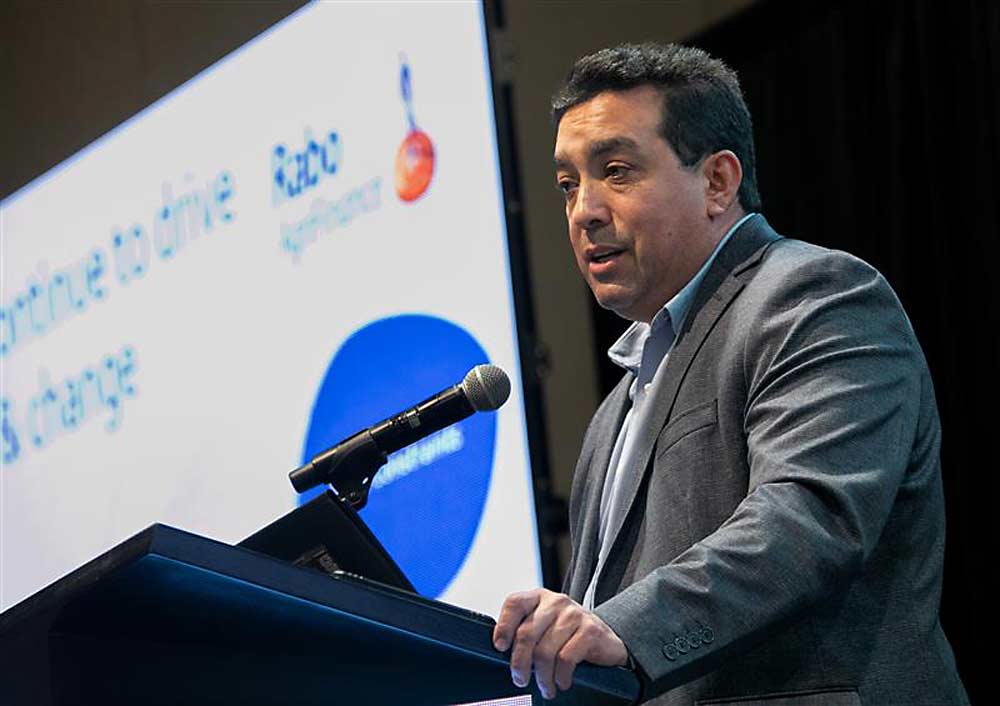
The tree fruit industry is facing economic pressures all around, and immigration is becoming less likely to help solve problems, said David Magaña of Rabobank, the keynote speaker at the Washington State Tree Fruit Association Annual Meeting in Kennewick, Washington, on Dec. 4.
That was just one point made by the vice president and senior analyst for RaboResearch Food and Agribusiness in his sweeping assessment of the world economy as it relates to fresh fruit.
Fewer single men are coming from Mexico to the United States to work, said Magaña. In Mexico, wages are rising much faster than they are in the United States, the share of workers in agriculture is going down and families are getting smaller.
“I can relate to that,” said Magaña, who grew up in a large family in Central Mexico. His father once worked as a migrant laborer in cherry and apple orchards in Washington’s Yakima Valley.
In his sweeping economic presentation, Magaña touched on inflation, interest rates and world events. He showed growers that fresh produce exports are declining, and imports have been rising. He expects shoppers will see Chilean cherries on U.S. store shelves, he said, as consumers learn to expect them year-round. Peruvian producers have been investing heavy sums of capital into cherry production, too.
The conference will continue through Dec. 6 at the Three Rivers Convention Center, with session topics ranging from organic production to labor and technology. An awards banquet will be Tuesday night, while trade show vendors fill the neighboring Toyota Center all three days of the event.
Also, during Monday morning’s session, Jon DeVaney, president of WSTFA, discussed top state legislative issues, which include seeking a seasonal exemption to the state’s overtime mandate, a break from sales and use taxes on reusable packaging, and state funding for the organization’s leadership program.
Mark Powers, president of the Northwest Horticultural Council, told growers the U.S. Food and Drug Administration may release its preharvest agricultural water requirements in February 2024 as part of the Food Safety Modernization Act. He also discussed a federal proposal to tighten restrictions regarding the Endangered Species Act, lingering attempts to pass the Farm Workforce Modernization Act and — in a moment of good news — the removal earlier this year of a 20 percent retaliatory apple tariff by India, a sizable export market.
Diane Kurrle, senior vice president of the U.S. Apple Association, discussed her group’s advocacy work on the U.S. Farm Bill.
Georgette Bonagofski, business development manager for the Northwest Seaport Alliance, announced improvements to ports of Tacoma and Seattle and the ratification of a contract between terminal operators and dock workers that will last through July 2028.
David Granatstein, retired Washington State University professor at the Tree Fruit Research and Extension Center, gave the 42nd Batjer Address, considered the meeting’s academic highlight. He discussed sustainability and how the term is and should be defined.
—by Ross Courtney






Leave A Comment